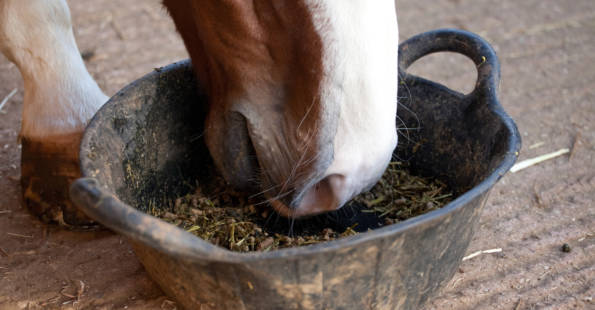Tuesday 19th February, 2019

Diets are always a hot topic, but have you paid much attention to what your equine friend is eating? We all crave carbs in the winter months, but unbalanced diets and reduced exercise can affect the health and fitness of us and our horses. Here is the low down on winter feeding and how to prepare for the new season.
Fibre is an essential part of a horse’s diet, and one area of nutrition that suffers during the winter is grazing. Poor pastures can cause significant changes to a horse’s condition because grazing becomes scarce and lacks. If your horse is turned out all year round, you need to supplement his diet with high quality fibre. Alfalfa or hay are the feeds of choice to keep your horse in tip top condition.
In addition to good grazing, horses need carbohydrates, proteins, fats, vitamins and minerals. During the winter, horses benefit from receiving supplements within a hard feed every day. All horses need fibre, and the ratios of feed to fibre will vary according to the demand’s places on him. Feeding older horses will look very different to feeding competition horses. If you are training hard in preparation for the new season then concentrated high energy feed and musculoskeletal supplements are necessary to support your regime. They will help the body to repair and rebuild, and maintain energy levels throughout your training schedule. On the other hand, retired veterans will require little hard feed, but fibre, molasses and joint support supplements will make a big difference.
If your horse is stabled for long periods of time during the winter then you need to drastically reduce their food intake to avoid weight gain. However, it is vital to maintain their condition and prevent boredom in the stable. A large purpose built stable with plenty of room to move around in will prevent stiffness and built in mangers for hay, apples in water and equiballs can give your horse a treat while keeping them entertained. Invest in mineral licks to provide vital nutrients this winter.
When implementing any changes to your horse’s diet, they must be made very gradually.Not sure what your horse needs? Chat to an equine expert who knows you and your horse, such as your riding instructor, farrier or vet. They will advise you on how to best support your horse according to his age, condition and your training schedule.